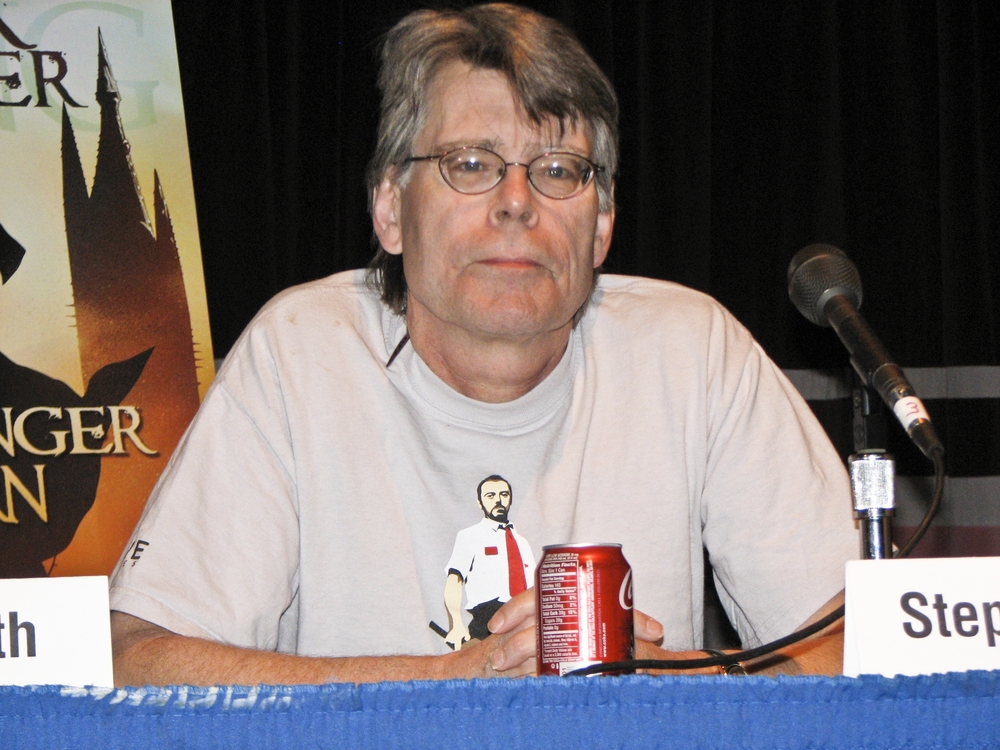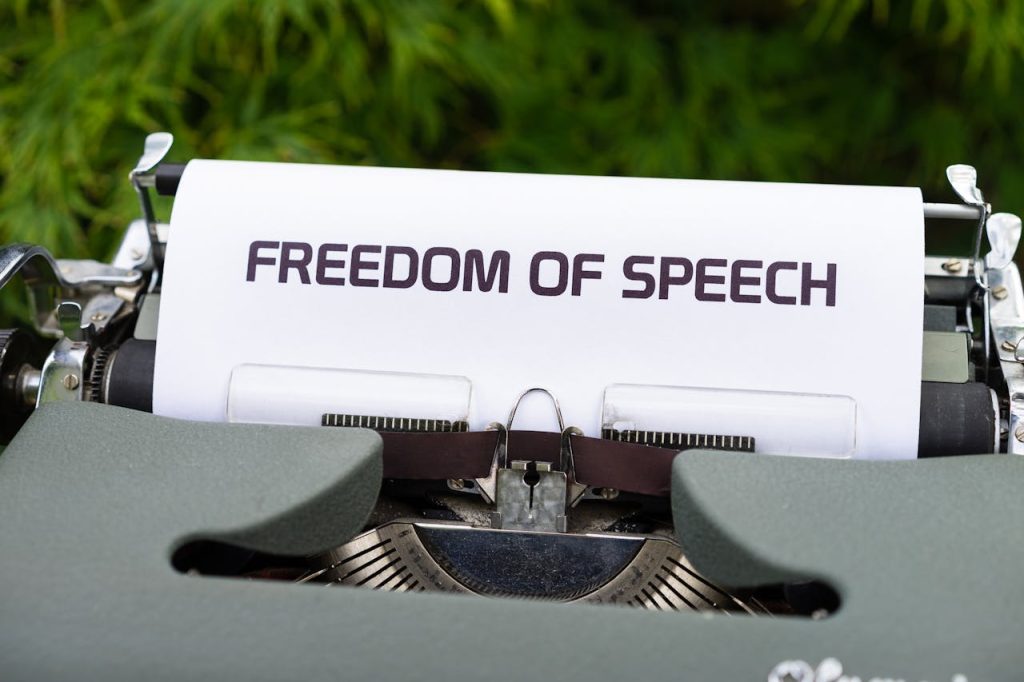Your cart is currently empty!
Stephen King Condemns Surging Book Bans After Being Named America’s Most Censored Author

Stephen King, the legendary master of horror whose words have haunted and inspired millions, now finds himself at the heart of a very different kind of story about censorship, freedom, and the battle over books in America.

Despite a career that’s spanned nearly five decades and produced over 60 novels, many adapted into blockbuster films and acclaimed series, King has just been named the most banned author in the United States. And true to form, he’s not staying silent about it.
A King of Horror and Now, of Book Bans
Stephen King’s transformation from a bestselling storyteller to the most banned author in America reveals a deeper cultural tension around what literature is deemed suitable for young readers. According to PEN America, during the 2024–2025 academic year, there were 6,870 documented cases of books being challenged or removed from school shelves across the country.

Within that wave of censorship, King’s novels appeared 206 times, an extraordinary figure that underscores how widespread restrictions have become even for authors at the heart of popular culture. His inclusion on this list is telling because his works, while often containing violence or unsettling themes, are not targeted for the same reasons as books dealing directly with race, gender, or sexuality.
Instead, they are frequently removed under broad content filters that categorize anything with mature or disturbing subject matter as inappropriate for students. This sweeping approach, as shown in PEN’s data, has led to inconsistencies where one district may permit a novel like Carrie for its literary merit while another bans it outright for its depictions of bullying and retribution.
The full report, titled The Normalization of Book Banning, notes that since mid-2021, nearly 23,000 books have been banned nationwide, a record-setting figure that reflects how political pressure, fear of parental backlash, and uneven enforcement of content standards have converged to make censorship a normalized part of education policy.
“This Is Still America, Dammit” – King Responds
Never one to hold back, Stephen King addressed the PEN America report with his characteristic mix of humor, frustration, and defiance. On October 1, shortly after the data naming him the most banned author in the United States was released, King took to X (formerly Twitter) to reclaim the narrative in his own words. Declaring himself the “most banned author in the United States,” he confronted the situation not with resignation but with a call to action, transforming censorship into a challenge for readers everywhere.
He continued: “May I suggest you pick up one of them and see what all the pissing & moaning is about? Self-righteous book banners don’t always get to have their way. This is still America, dammit.”
I am now the most banned author in the United States–87 books. May I suggest you pick up one of them and see what all the pissing & moaning is about? Self-righteous book banners don’t always get to have their way. This is still America, dammit.
— Stephen King (@StephenKing) September 26, 2025
The post quickly went viral, prompting widespread discussion about free speech and the ongoing wave of book bans. Many readers praised King for using his platform to defend the right to read, while educators and librarians echoed his sentiment that the real danger lies in complacency. His response tapped into the broader national mood of fatigue and resistance toward censorship campaigns that have disrupted classrooms and public libraries alike.

This was far from King’s first public defense of literature. In 2023, when Florida officials announced the removal of several of his works under new education laws, King made his disbelief known with his trademark bluntness: “Florida has banned 23 [of] my books. What the f**k?”
That reaction highlighted not only his outrage but also his deep understanding of how censorship undermines creative freedom and the exchange of ideas. In a follow-up statement to Newsweek, he offered a more reflective response that reinforced his belief in the power of reading as an act of resistance: “I have said it before, and will say it again: When books are banned from school libraries, run to your public library, or the nearest bookstore, and read what it is your elders don’t want you to know.”
Together, these remarks reveal a writer who views literature not merely as entertainment but as a vital part of civic life. King’s words remind readers that the defense of free expression is not the duty of authors alone but of every individual who values the right to think, question, and read without fear of restriction.
Why Stephen King’s Books Keep Getting Targeted
Stephen King’s novels sit at a crossroads of literary influence and content scrutiny. Many school libraries include his work because of its cultural footprint, frequent study of film adaptations, and the way his stories invite discussion about fear, morality, and community. That same presence places his titles squarely inside systems that prioritize risk avoidance when questions about suitability arise. When a concern is raised, district reviewers often begin with authors who are most visible and whose backlists contain intense material, which makes King a predictable early target.

In many districts the initial trigger is procedural rather than ideological. A parent complaint, a staff member’s pre screening, or a keyword search in the catalog can move a title into an expedited review. Titles that include violence, sexual situations, or sustained psychological terror are flagged for further assessment. Because King writes long form narratives that do not shy away from trauma and consequence, his books frequently meet those triggers even when the broader literary value is clear to librarians and teachers.
She explained to NBC, “His books are often removed from shelves when ‘adult’ titles or books with ‘sex content’ are targeted for removal — these prohibitions overwhelmingly ban LGBTQ+ content and books on race, racism, and people of color — but also affect titles like Stephen King’s books.”
Once a review starts, administrators face real consequences if a judgment is later challenged, so many adopt a remove now and evaluate later approach. That approach can expand from a single title to multiple titles by the same author for the sake of consistency, which multiplies the effect on a writer with an extensive catalog like King.
Meehan added that overly cautious districts sometimes act out of fear rather than principle: “Some districts — in being overly cautious or fearful of punishment — will sweep so wide they end up removing Stephen King from access, too.”
Visibility magnifies the cycle. Well known names draw fast attention and rapid sharing of isolated passages on social media, where context is thin and pressure on local boards rises. Because King has a large audience and many titles that have been adapted for screen, challengers often view his books as symbolic tests of a district’s stance. The result is that access decisions are driven by optics and speed rather than by the holistic review standards that librarians are trained to apply.
For older students the practical outcome is a narrower path to complex storytelling that many use to process fear and resilience in a guided environment. Removal from school libraries shifts access to public libraries or retail, which changes who can obtain the books and when. That disparity, rather than any single scene, explains why King’s work is repeatedly targeted within school systems.
King’s Clashes With Controversy Beyond the Page
The renewed attention on King’s banned works also comes shortly after another controversy. Just weeks before the PEN America report, supporters of the MAGA movement attempted to “cancel” the author over a social media post about conservative activist Charlie Kirk, who was fatally shot during a university event in Utah. In the post, King incorrectly claimed that Kirk had “advocated stoning gays to death.” After social media users pointed out the error, King publicly apologized:c“I apologize for saying Charlie Kirk advocated stoning gays. What he actually demonstrated was how some people cherry-pick Biblical passages.”
This moment, a bestselling author correcting himself in front of millions, seemed to mirror the very debates over truth, interpretation, and accountability that underpin the current book banning discourse. The incident also underscored the scrutiny surrounding public figures who use their platforms to discuss political or social issues, showing how quickly misinformation and outrage can intertwine in the digital space.

King’s engagement with public life extends far beyond that episode. He has long been outspoken about his political beliefs, particularly regarding former President Donald Trump. In a conversation with The Guardian earlier this year, he mused about how he’d write the end of “Trump’s America” if it were one of his novels, “I think it would be impeachment – which, in my view, would be a good ending.”
He continued, “I would love to see him retired, let’s put it that way. The bad ending would be that he gets a third term and takes things over completely.”
For King, freedom of speech and democracy seem inseparable, both depending on the right to tell uncomfortable truths and to question authority. His willingness to speak candidly, even when it leads to controversy, reflects the same principles that shape his fiction: a belief that confronting uncomfortable realities is essential to understanding them. By combining his outspoken political commentary with his defense of artistic freedom, King positions himself not only as a storyteller but also as a participant in the larger national conversation about honesty, censorship, and the power of words.
What the Fight Over King’s Books Really Represents
At its core, the banning of Stephen King’s works isn’t just about graphic scenes or explicit language, it’s about who decides what ideas are too dangerous for young readers. His novels, filled with monsters both supernatural and human, often force readers to confront fear, corruption, and morality. Ironically, those very themes now define the real-world debate surrounding his books.

Book banning has historically signaled a deeper societal unease, a fear of losing control over narratives. From To Kill a Mockingbird to The Catcher in the Rye, history has shown that silencing stories often amplifies them instead.
As King himself said, when books are banned, the most radical act one can take is to read them.
